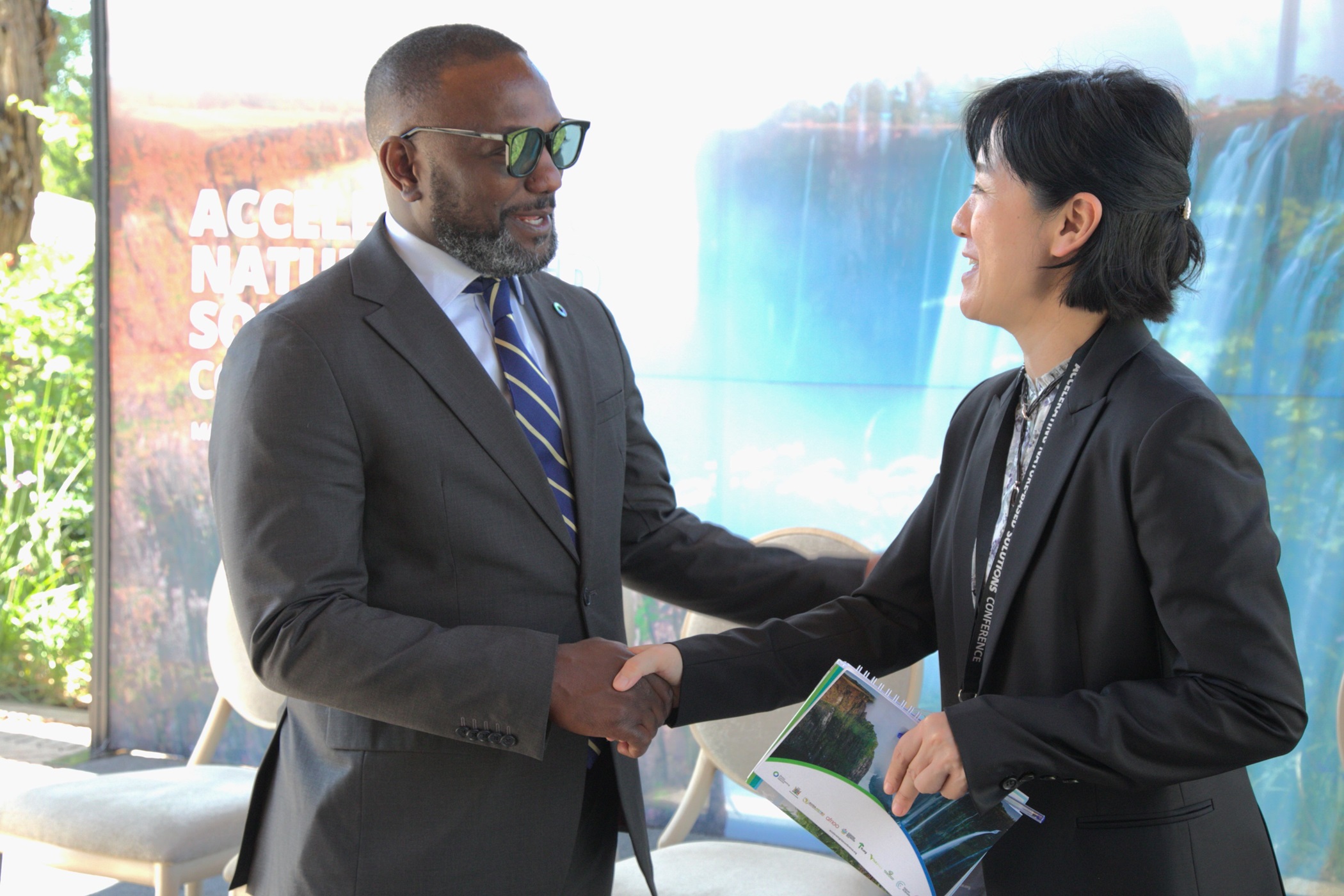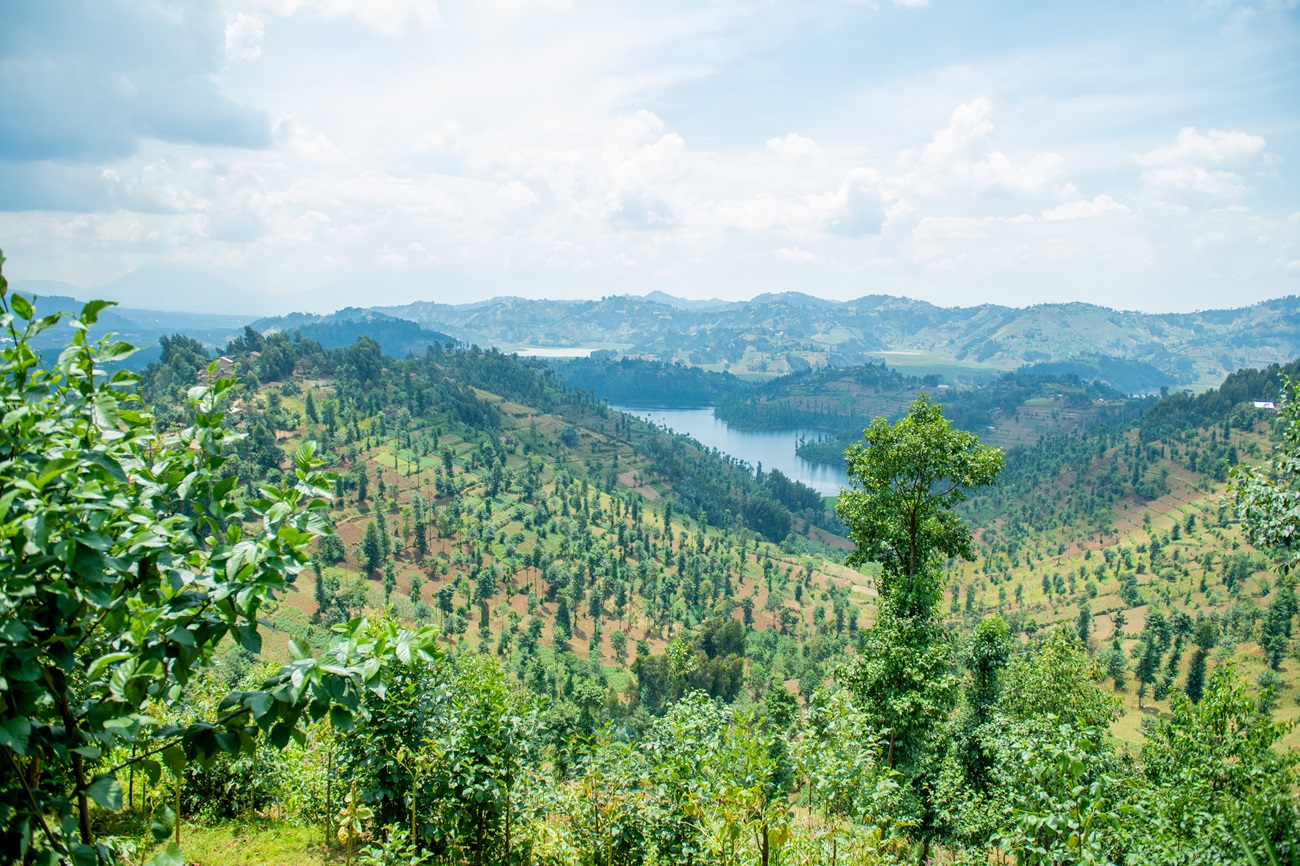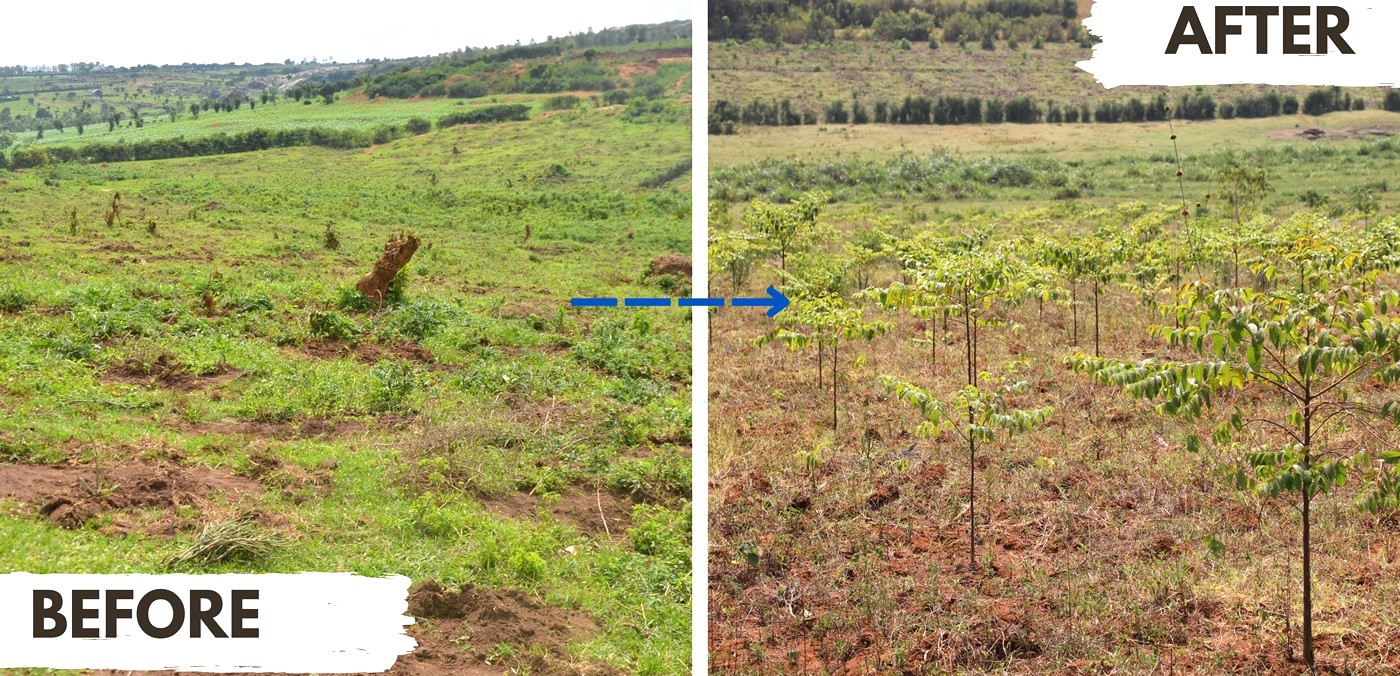DeSIRA agroforestry research project preliminary findings shows indigenous trees key to landscapes restoration in Rwanda
Kigali-Rwanda: Research carried out in the Eastern Province of Rwanda under the DeSIRA Research Project, funded by the European Union Delegation in Rwanda, shows that indigenous trees have the potential to deal with the problem of drought and other soil related problems that have been rampant in the province.

This was revealed on Tuesday during the National Agroforestry Research conference under the theme “Trees on Farms: A sustainable solution for Landscape Restoration, Biodiversity and Livelihoods”.
The conference is organized by the Ministry of Environment, Government of Rwanda in collaboration with IUCN, Enabel, UGent, KU Leuven and the University of Rwanda and fully funded by European Union in Rwanda under DeSIRA agroforestry research project in Rwanda.
The preliminary findings done by four PhD students under this research project has also identified other solutions that can support various initiatives that are taking place in the Eastern province among them is the use of the improved cooking stoves that can help to reduce the number of trees cut down by small scale farmers while searching for firewood. The research also provides opportunities of internships for Master students from KUL, UGent, and University of Rwanda.
The conference brought together research and academic institutions and different stakeholders supporting Rwanda's landscapes production capacity restoration and climate change mitigation through agroforestry.
 Photo: Yasuda Kaori, IUCN Rwanda Country Representative, Albert Schenk, IUCN Programme Manager attended National Agroforestry Research conference
Photo: Yasuda Kaori, IUCN Rwanda Country Representative, Albert Schenk, IUCN Programme Manager attended National Agroforestry Research conference
According to Ms. Gatesi Julienne, IUCN funded PhD Scholar under DeSIRA said that farmers have now understood that trees increase the health of soil, like water storage of nutrients availability, but also contribute to crop productivity when these trees are well managed.
“The species that we are testing are the ones that are dominating in Eastern Province, like Grevillea (an exotic tree that is often used in agroforestry systems in Rwanda) and native tree species. But for us, we focused only on boundary-based Grevillea and agroforestry systems.” She explained
“Farmers’ response is positive, they are very happy. And most of the farmers who are not even participating in the research, are coming in our meetings and our sessions and trying to cope especially in doing appropriate pruning, expecting that is going also to contribute to the crop productivity improvement.” She added.
According to Mr. Jean Aimé Ruticumugambi, another IUCN funded PhD Scholar under DeSIRA said that they are studying the biodiversity indicators of crop performance with a clear focus on the arthropods (below and aboveground) and their ecosystem services along a gradient of tree density in peri urban area of Kigali and Eastern province of Rwanda.
 Photo: Agroforestry landscape in Gatsibo district, Eastern Province of Rwanda
Photo: Agroforestry landscape in Gatsibo district, Eastern Province of Rwanda
The research project has four themes:
- Landscape scale impact of agroforestry on functional biodiversity
- Landscape scale impact of agroforestry on water balance dynamics
- Assessment of agroforestry-based biomass energy potential
- Agroforestry adoption challenges, opportunities and enabling environment.
Various exchanges in the one-day conference covered several themes regarding the ecosystem services of agroforestry systems; biomass and energy supply potential in agroforestry systems; the socio-economic of agroforestry adoption; and agroforestry system monitoring tools and approaches.
According to Patrick Karera, the Permanent Secretary in the Ministry of Environment, appreciated the work IUCN in partnership with Government and other partners are doing in both research and landscape restoration activities. Mr Patrick has acknowledged the impact of DeSIRA project especially in informing incoming projects where needed more attention, types of trees, community approach, among others.
 Photo: Patrick Karera, the Permanent Secretary in the Ministry of Environment, appreciated the work IUCN is doing in Rwanda
Photo: Patrick Karera, the Permanent Secretary in the Ministry of Environment, appreciated the work IUCN is doing in Rwanda
“We also wish to acknowledge the support of the European Union to the DeSIRA programme, to make sure that all those interventions in the Eastern Province are felt by the research and proven innovation in terms of agroforestry to deliver fast and efficiently on the commitments that we have set for the Eastern Province.” Mr. Patrick added before stressing that “efforts are complementing already ongoing programmes, including the annual commitment of the government to earmark resources to districts to make sure that the restoration process is taken as priority at district level.”
“It is also complementing other partners’ investments that are covering the south, west and north provinces. And we count on your continuous collaboration to make sure that we achieve our Bonne commitments and our vision 2050 to keep our Nature and Forest Reserve by 30 percent over the next three decades, “he added.
According to Vincent NSABUWERA, Interventions Manager in Forestry, Agroforestry and Climate change Adaptation and Mitigation at Enabel said that the main objective of DeSIRA project is to identify ways to restore the degraded land in the Eastern Province and to inform the development partners and various actors in increasing the innovation towards creating bigger impact.
“So far, we are discussing the preliminary findings. The results are already showing, for instance, acceptability of various agroforestry systems in the Eastern Province. We have made trials on the survival of indigenous trees and we want to restore what used to be the tree ecosystem in the Eastern Province.” NSABUWERA said.
“Targeting Eastern Province with these kinds of programmes is because the province is highly vulnerable in terms of climate change. But of course, the research we carried out in the Eastern Province will inform the wider scale” He explained
 Photo: Master students got occasion to interact with their supervisors from KU Leuven and UGent Universities during field work
Photo: Master students got occasion to interact with their supervisors from KU Leuven and UGent Universities during field work
During their stay in Rwanda, PhD and Master students’ supervisors and promoters from KUL, and UGent in Belgium jointly with IUCN and Enabel staff visited different landscapes in Eastern Province where DeSIRA agroforestry research is being carried out. The team also participated in first ever physical DeSIRA project steering committee took place in Kigali, Rwanda.
 Photo: PhD and Master students’ supervisors and promoters from KUL, and UGent in Belgium jointly with IUCN and Enabel staff visited different landscapes
Photo: PhD and Master students’ supervisors and promoters from KUL, and UGent in Belgium jointly with IUCN and Enabel staff visited different landscapes
During the conference and field visit the researchers and decision makers in agroforestry have brainstormed about future way forward mainly on inducing more indigenous species as alternative for Grevillea and other exotic ones. More data would be needed on their performance in terms of growth and biomass production. There will be also an occasion to determine how competitive agroforestry are for water and their impact on the microclimate and biodiversity. Such work could then build on piloting research outcomes that are expected to be generated.
 Photo: National Agroforestry Research Conference took place in Kigali, Rwanda
Photo: National Agroforestry Research Conference took place in Kigali, Rwanda
Disclaimer
Opinions expressed in posts featured on any Crossroads or other blogs and in related comments are those of the authors and do not necessarily reflect the opinions of IUCN or a consensus of its Member organisations.
IUCN moderates comments and reserves the right to remove posts that are deemed inappropriate, commercial in nature or unrelated to blog posts.



